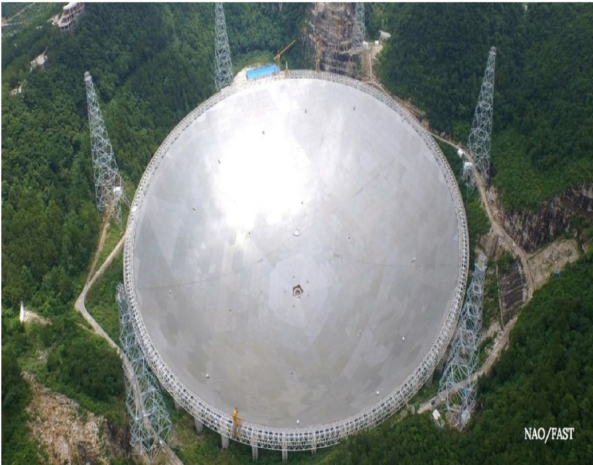
China to open world’s largest radio telescope to international scientists in April
Team Udayavani, Jan 7, 2021, 4:10 PM IST

China will officially open the world’s largest single-dish radio telescope to international scientists, starting April 1.
The 500-metre Aperture Spherical radio Telescope (FAST) has a diameter of half a kilometre and had started operations in January last year. It has a receiving area equivalent to about 30 football fields.
#China will open access of its 500-meter Aperture Spherical Telescope (#FAST), the world’s largest radio telescope, to the scientific community of the world from April 1,2021. #Astronomy pic.twitter.com/DYBjLNYBiO
— Ambassador Deng Xijun (@China2ASEAN) January 5, 2021
Radio telescopes are designed to “listen” or “receive” signals emitted from the cosmos. With specialized antennas and radio receivers, these telescopes can detect radio waves from stars, galaxies and black hole. The data collected in turn help scientists better explore the universe.
Udayavani is now on Telegram. Click here to join our channel and stay updated with the latest news.
Top News

Related Articles More

AI-powered network solution eliminates spam calls and SMS for customers in Karnataka

Rapid digital expansion to create over 1 lakh new jobs in fiber tech in India in next 5 years

National Consumer Helpline to roll out AI-based features, partners with 1,000 firms

BTS2024: If India can make rocket sensors, it can also make car sensors, says ISRO chief Somanath

World COPD Day: Know your lung function
MUST WATCH
Latest Additions

CM Vijayan opens Huddle Global; Says Kerala will be key player in India’s deep tech ambitions

Bengaluru to host Aero India 2025 from Feb 10-14

Karnataka cabinet decides to reopen graft case against Ex-CM Yediyurappa and family

Man attacks nurse inside hospital, caught on camera

Special tribute concert for legendary singer SPB to be held in Bengaluru on Dec 8
Thanks for visiting Udayavani
You seem to have an Ad Blocker on.
To continue reading, please turn it off or whitelist Udayavani.

















